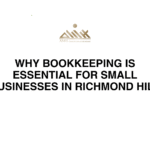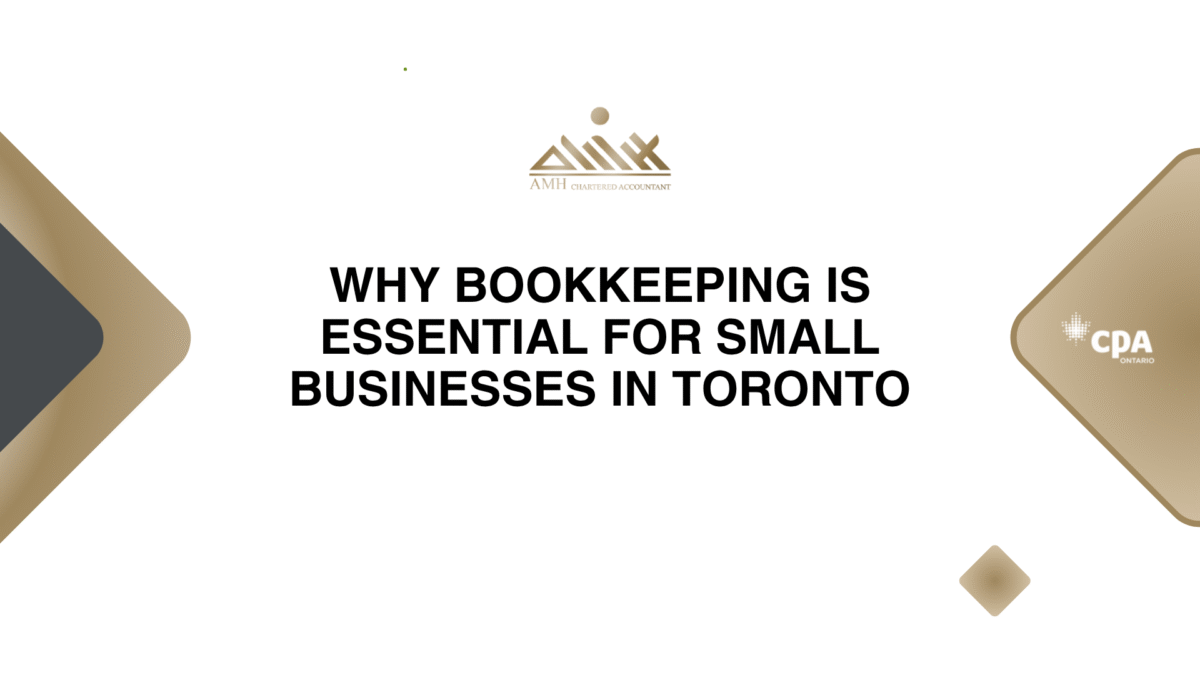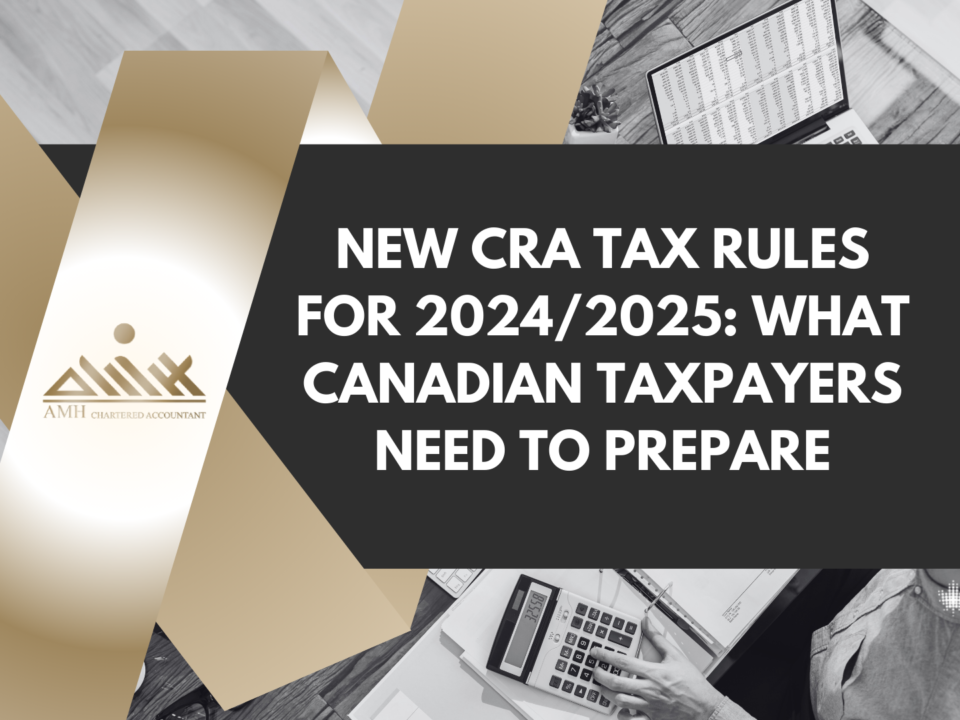
T2 Corporate Tax Return: What Business Owners Need to Know
September 25, 2025
Why Bookkeeping is Essential for Small Businesses in Richmond Hill
November 7, 2025Why Bookkeeping is Essential for Small Businesses in Toronto
Quick Read Summary:
Accurate bookkeeping is crucial for small businesses in Toronto to maintain financial clarity, comply with tax laws, and make strategic decisions. It helps businesses track their cash flow, prepare for tax season, and identify cost-saving opportunities. Effective bookkeeping ensures compliance with CRA regulations, reduces the risk of audits, and helps businesses secure financing. Professional bookkeeping services offer expertise in organizing financial records, which allows business owners to focus on growth while ensuring financial accuracy and timely reporting.
If you’re managing a small business in Toronto, you’re likely aware that financial management goes beyond simply tracking sales and expenses. Bookkeeping forms the foundation of financial control, offering you the clarity and oversight needed to make informed decisions. Whether you’re launching your first business or aiming for sustainable growth with an established one, understanding the importance of bookkeeping is essential for staying organized and compliant.
The business environment in Toronto is competitive and ever-changing, which means accurate bookkeeping is not only an administrative task but also a strategic asset. With evolving tax regulations, dynamic market conditions, and the necessity for timely financial insights, your bookkeeping practices can directly influence your business’s profitability and long-term success.
The Fundamentals of Bookkeeping for Small Businesses
Bookkeeping refers to the systematic process of recording, organizing, and tracking a company’s financial transactions. It involves recording every dollar coming in and out, creating reliable records that are essential for tax filing and strategic planning. For small businesses in Toronto, maintaining effective Toronto bookkeeping helps you:
Monitor cash flow and maintain liquidity
Prepare accurate financial statements for potential investors or lenders
Meet Canada Revenue Agency (CRA) deadlines and compliance requirements
Identify areas for cost savings and business growth
Reduce the risk of errors and penalties, including audits
Keeping your financial records up-to-date allows you to react quickly to market changes and opportunities, whether it’s adapting to a new trend or managing a challenging tax season. Bookkeeping isn’t just about following rules—it empowers you to run your business confidently and effectively.
Common Bookkeeping Challenges for Toronto Small Businesses
While bookkeeping is essential, many small business owners in Toronto face a few common hurdles when managing their financial records. These challenges can range from time management issues to dealing with local tax complexities:
Time Management: Managing daily operations while staying on top of bookkeeping can feel overwhelming, especially during busy periods like tax season.
Navigating Tax Rules: The intricacies of HST, payroll taxes, and other local requirements can be confusing without the right expertise.
Handling Receipts and Invoices: Losing track of financial documents may lead to missed deductions or inaccurate financial reporting.
Choosing the Right Software: Finding the best bookkeeping software for your business needs can be daunting, given the variety of options available.
Data Accuracy: Manual errors or outdated records can lead to inaccurate financial insights, putting your business at risk.
Recognizing these common obstacles is the first step to addressing them with solutions that simplify your bookkeeping for small Businesses tasks and free up time for business growth.
Choosing the Right Bookkeeping Solution in Toronto
When it comes to bookkeeping, Toronto business owners have various options, each with its own advantages. Your choice will depend on your business’s complexity, budget, and your preferred level of involvement in the financial process.
DIY Bookkeeping: Some small businesses use spreadsheets or entry-level software for basic bookkeeping. While this may be cost-effective, it’s risky if you lack knowledge of accounting principles or Toronto-specific tax rules.
Cloud-Based Bookkeeping Software: Platforms like QuickBooks Online, Xero, and Sage offer automation, accessibility, and integration with banking systems, making financial management more efficient and error-free.
Professional Bookkeeping Services: Hiring a professional bookkeeper ensures your records are accurate, compliant, and strategically aligned with tax-saving opportunities, especially as your business grows or becomes more complex.
Outsourcing your bookkeeping can not only improve accuracy but also provide valuable strategic insights that help you optimize cash flow, identify business trends, and plan effectively for the future.
Key Components of an Effective Bookkeeping System
To keep your small business organized and audit-ready, it’s crucial to set up a comprehensive bookkeeping system that includes the following elements:
Chart of Accounts: Categorizes every transaction, making financial reports clear and consistent.
Daily Transaction Recording: Avoids backlogs and reduces the risk of errors by entering financial data regularly.
Bank Reconciliation: Compares your records with bank statements to spot discrepancies and ensure accuracy.
Expense Management: Ensures you’re tracking business expenses for accurate reporting and tax deductions.
Invoice Management: Helps you manage receivables and ensures you maintain healthy cash flow.
Payroll Processing: Ensures compliance with CRA regulations and prevents errors in employee compensation.
Financial Reporting: Generates vital reports like balance sheets, income statements, and cash flow statements to give you an overview of your business’s health.
By incorporating these elements into your bookkeeping system, you can ensure your financial records are organized, accurate, and optimized for strategic decision-making.
Staying Compliant with Canadian Tax Regulations
In Toronto, small businesses must comply with both federal and provincial tax regulations. Accurate bookkeeping is the first line of defense in ensuring your business stays compliant with the Canada Revenue Agency (CRA). Here are some critical tasks you need to manage:
Correct HST Rates: Registering for and charging the appropriate HST rates based on your business type.
Recordkeeping: Keeping track of all sales, expenses, and invoices to maintain accurate financial records.
Payroll Deductions: Documenting and remitting employee source deductions correctly.
Tax Filing: Preparing and submitting corporate or personal tax returns in accordance with CRA requirements.
Professional bookkeeping services in Toronto can assist you with these tasks, helping to minimize your tax liability and avoid costly penalties.
How Bookkeeping Supports Better Business Financial Management
Accurate bookkeeping is more than just a regulatory necessity; it’s a tool for effective financial management. Well-maintained records help you:
Monitor Cash Flow Trends: Spot potential shortfalls before they become a problem.
Evaluate Business Performance: Compare actual financial performance with budgets or forecasts.
Assess Investment Opportunities: Make informed decisions about whether to invest in new ventures or expand existing operations.
Demonstrate Financial Health: Provide lenders, investors, or partners with reliable financial data that boosts your credibility.
With accurate books, you gain the insight needed to make confident, data-driven decisions that propel your business forward.
Best Practices for Staying Organized All Year Round
Here are some effective strategies for keeping your bookkeeping in top shape throughout the year:
Schedule Regular Bookkeeping: Set aside time weekly or monthly to review transactions and reconcile accounts.
Go Digital: Store digital copies of receipts and invoices, making it easy to retrieve documents during tax season.
Automate Tasks: Use software to automate repetitive tasks like invoicing and categorizing expenses.
Stay Informed: Keep up to date with changes to tax laws and regulations that might affect your bookkeeping.
Work with a Professional: Partnering with an experienced Toronto accountant ensures your records stay accurate and optimized for your business goals.
Contact AMH Chartered Professional Accountant for Expert Bookkeeping Services
At AMH Chartered Professional Accountant, we combine years of experience, precise accounting practices, and a genuine commitment to our clients. As the trusted Toronto chartered professional accountant, we’re dedicated to simplifying your finances, minimizing taxes, and helping your financial situation grow stronger every year.
Whether you need help with bookkeeping, tax planning, or financial consulting, we are here to help you manage your business’s financial health with confidence.
Contact us today for expert advice and personalized financial solutions:
📞 Call: 416-900-6079
📧 Email: info@amhtaxes.com
🌐 Website: https://amhtaxes.com/
By adding clear calls to action and making sure to highlight AMH Chartered Professional Accountant as a trusted and experienced partner, this article not only provides valuable insights into the importance of bookkeeping for small businesses in Toronto but also encourages potential clients to reach out for personalized support.




